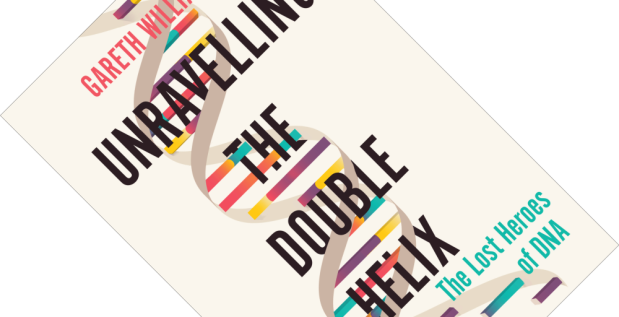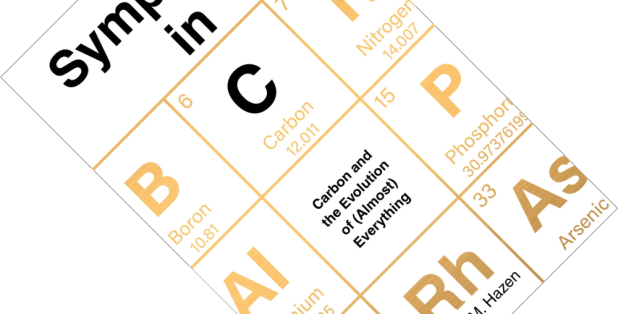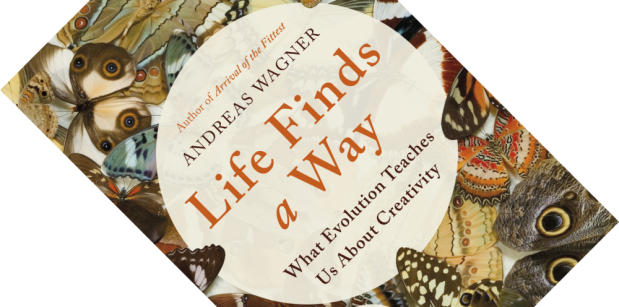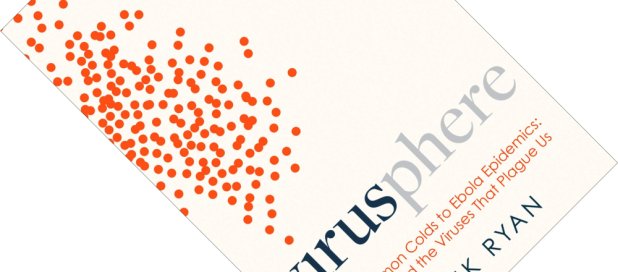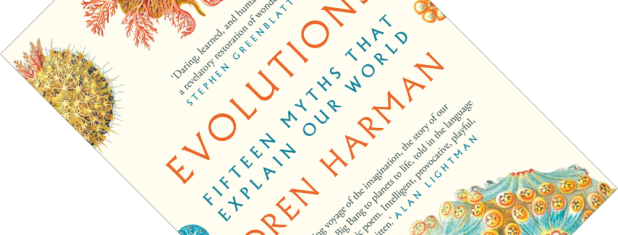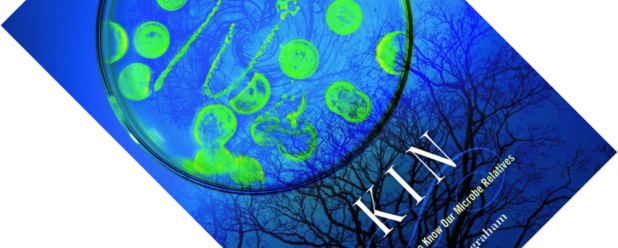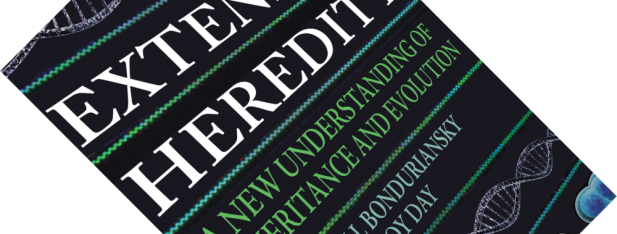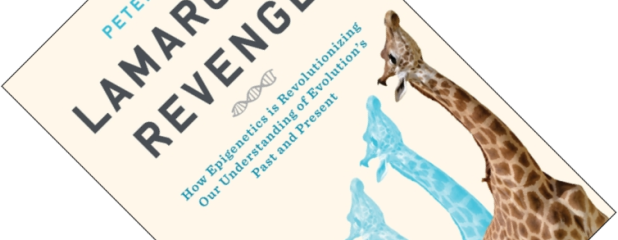Most people will at least be mildly familiar with the story of how the structure of DNA was discovered. Francis Crick and James D. Watson are household names in this story as they went on to win a Nobel Prize. But can you name the third person to share it with them? Most people will also have heard of Rosalind Franklin, but as Gareth Williams shows, so many other people were relevant to this story. Watson and Crick only put the finishing cherry on the cake. Unravelling the Double Helix covers the preceding 85 years of breakthroughs, blind alleys, near-misses, and “beautifully executed bellyflops” by some of the greatest scientists of their time.
RNA
Book review – Symphony in C: Carbon and the Evolution of (Almost) Everything
Many works of popular science claim to be histories of almost everything or everyone, but earth scientist Robert M. Hazen might actually be in the position to stake that claim. Whether you are talking stellar evolution, the origin of life, organic chemistry, synthetic materials, or hydrocarbon fuels – the multifaceted atom carbon is ubiquitous and pervasive. Symphony in C is a whirlwind tour through geology, biochemistry, and evolutionary biology that is an incredibly absorbing read, although in places it almost comes apart at the seams under the intensity of its enthusiasm.
Book review – Life Finds a Way: What Evolution Teaches Us About Creativity
Back in 2014, evolutionary biologist Andreas Wagner blew my mind. His book Arrival of the Fittest: Solving Evolution’s Greatest Puzzle gave fascinating answers to the question of where evolutionary innovations come from. I will say more about it below, but in short, there are many ways to solve a problem. But, as Life Finds a Way shows, not all solutions are equally good. To evolve from a suboptimal solution to a superior one usually involves several steps through intermediary solutions that are even worse, something that natural selection acts against. So how does evolution overcome such obstacles? And what does the answer have to do with human creativity? Can we apply these ideas further afield in education or economics? And is this book going to be as good as his last one? So many questions…
Book review – Discovering Retroviruses: Beacons in the Biosphere
In the already unusual world of viruses, retroviruses stand out for being even more so. Called “retro” because they reverse the flow of genetic information from RNA to DNA, rather than the normal DNA to RNA, they have turned out to be ancient, omnipresent, and incredibly influential. They are also important as they cause diseases such as AIDS. With Discovering Retroviruses, Anna Marie Skalka delivers a book dedicated to this particular group that is as technical as it is fascinating.
Book review – Virusphere: From Common Colds to Ebola Epidemics: Why We Need the Viruses that Plague Us
Beware the virus. If there is one message physician and evolutionary biologist Frank Ryan is hammering home with this book, it is this. Viruses are absolutely everywhere and more numerous even than microbes. So much so that Ryan speaks of the virosphere rather than the biosphere. But more than harbingers of disease, they are also agents of evolutionary invention. Now why does that sound familiar?
Book review – Evolutions: Fifteen Myths That Explain Our World
Communicating the complexities and abstractions of scientific findings is not easy. Anyone who has ever slogged through yet another dense paper or muddled presentation will acknowledge this. Our universe, it seems, cares not for the human quest of understanding it. One of the things, then, that makes popular science books such a treat is that they infuse scientific findings and speculation with a certain lyricism and good storytelling. This is why we flock to authors such as Nick Lane, Richard Dawkins, Richard Fortey, and many others besides. This is why Richard Feynman and Carl Sagan remain household names decades after their death. The latter’s Pale Blue Dot segment still gives me goosebumps. With Evolutions: Fifteen Myths That Explain Our World, science historian Oren Harman boldly turns the concept on its head: rather than bringing poetic flair to a pop-science book, he brings scientific flair to an epic poem.
Book review – Kin: How We Came to Know Our Microbe Relatives
The problem with many history books is that they are written long after the facts, sometimes when the original protagonists are no longer alive. Historians or journalists often have no choice but to puzzle together the pieces of their story from eyewitness testimony or archival sources. Kin: How We Came to Know Our Microbe Relatives is a welcome exception to this rule. Written by emeritus microbiology professor John L. Ingraham, currently 94 years young, this book gives an intellectual history of the discipline of microbiology based on over seven decades of first-hand involvement and observation.
Book review – Extended Heredity: A New Understanding of Inheritance and Evolution
In my recent review of She Has Her Mother’s Laugh: The Powers, Perversions, and Potential of Heredity, I mentioned how the concept of heredity has become ever fuzzier the more we have learnt about how traits can be passed to the next generation. We have come from a very gene-centric period in biology, but biologists Russell Bonduriansky and Troy Day are ready to shake up the field. Neither a Lamarckian redux nor an attempt to downplay the importance of genes, this book successfully argues that the time has come to take into account non-genetic forms of heredity. Along the way, they provide a very interesting history lesson on how we got here in the first place.
Book review – The Epigenetics Revolution: How Modern Biology is Rewriting Our Understanding of Genetics, Disease and Inheritance
After the recently published Lamarck’s Revenge: How Epigenetics Is Revolutionizing Our Understanding of Evolution’s Past and Present left me little the wiser on how epigenetics actually works, I decided to track down a copy of Nessa Carey’s The Epigenetics Revolution. As one of two popular books published around the same time, it seemed like a good place to start. Peter Ward was right about one thing, this is indeed a landmark book, even if it is now a few years old.
Book review – Lamarck’s Revenge: How Epigenetics Is Revolutionizing Our Understanding of Evolution’s Past and Present
As one of several intellectuals who wrote about evolution before Darwin, time has not been kind to the French naturalist Jean-Baptiste Lamarck (1744-1829). Reviled during his lifetime by the influential Cuvier, after his death he became best remembered, and ultimately ridiculed, for the idea that characters acquired during an organism’s lifetime are passed on to its offspring. With the rise of the modern field of epigenetics, some of his ideas are making a comeback, albeit modified and adapted for the 21st Century. Palaeontologist and astrobiologist Peter Ward would even like to go so far as to restore some honour to his name and consider epigenetics a neo-Lamarckian process.

